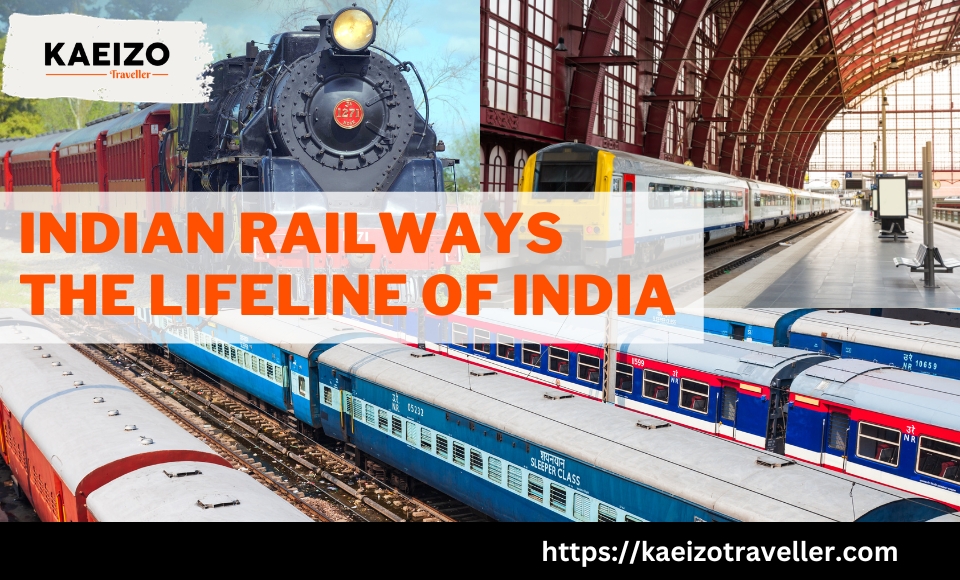
ndian Railways is the fourth largest railway network in the world by size, with a total length of over 68,000 kilometres. It is considered Indian Railways the lifeline of India .It operates over 13,000 passenger trains daily, on both long-distance and suburban routes, covering over 7,300 stations across the country. It is one of the busiest networks in the world, transporting over 8.4 billion passengers and over 1.3 billion tonnes of freight annually.
Indian Railways plays a vital role in the Indian economy and society. It is the lifeline of the country, connecting millions of people and transporting goods to every corner of the nation. Indian Railways is also a major employer, with over 1.3 million employees.
Importance of Indian Railways
Indian Railways is important for a number of reasons. It is a major mode of transportation for both passengers and freight. It also provides employment to millions of people and contributes to the Indian economy.
Passenger transportation
Indian Railways is the primary mode of transportation for millions of Indians. It is a relatively affordable and efficient way to travel long distances. Indian Railways also offers a variety of passenger train services, including express trains, superfast trains, and mail trains.
Freight transportation
Indian Railways is also a major mode of freight transportation. It transports a wide variety of goods, including agricultural products, industrial products, and minerals. Indian Railways plays a vital role in the Indian economy by helping to transport goods to and from markets.
Employment
Indian Railways is a major employer, with over 1.3 million employees. Indian Railways provides employment to people from all walks of life, including engineers, drivers, conductors, and station staff.
Economic contribution
Indian Railways contributes to the Indian economy in a number of ways. It generates revenue from ticket sales and freight charges. Indian Railways also supports a number of industries, including the tourism industry and the hospitality industry.
Challenges Faced by Indian Railways
Indian Railways faces a number of challenges, including:
Infrastructure
Indian Railways has a large and ageing infrastructure. Many of its tracks and stations are in need of repair. Indian Railways is also facing the challenge of expanding its network to meet the growing demand for transportation.
Safety
Indian Railways has a mixed safety record. In recent years, there have been a number of train accidents. Indian Railways is working to improve its safety record by investing in new technologies and training its staff.
Financial sustainability
Indian Railways is facing financial challenges. It is struggling to generate enough revenue to cover its costs. Indian Railways is also facing the challenge of competing with other modes of transportation, such as airlines and buses.
Future of Indian Railways
Despite the challenges it faces, Indian Railways remains a vital part of the Indian economy and society. The Indian government is investing in Indian Railways to improve its infrastructure, safety, and financial sustainability. Indian Railways is also working to modernise its operations and improve its customer service.
Indian Railways is likely to continue to play a major role in the Indian economy and society in the future. It will remain the primary mode of transportation for millions of Indians and a major employer. Indian Railways will also continue to play a vital role in the Indian economy by helping to transport goods and services to and from markets.
Conclusion
Indian Railways is the lifeline of India. It connects millions of people and transports goods to every corner of the nation. Indian Railways is also a major employer and a contributor to the Indian economy. Indian Railways is facing a number of challenges, but it is working to overcome them. Indian Railways is likely to continue to play a major role in the Indian economy and society in the future.




